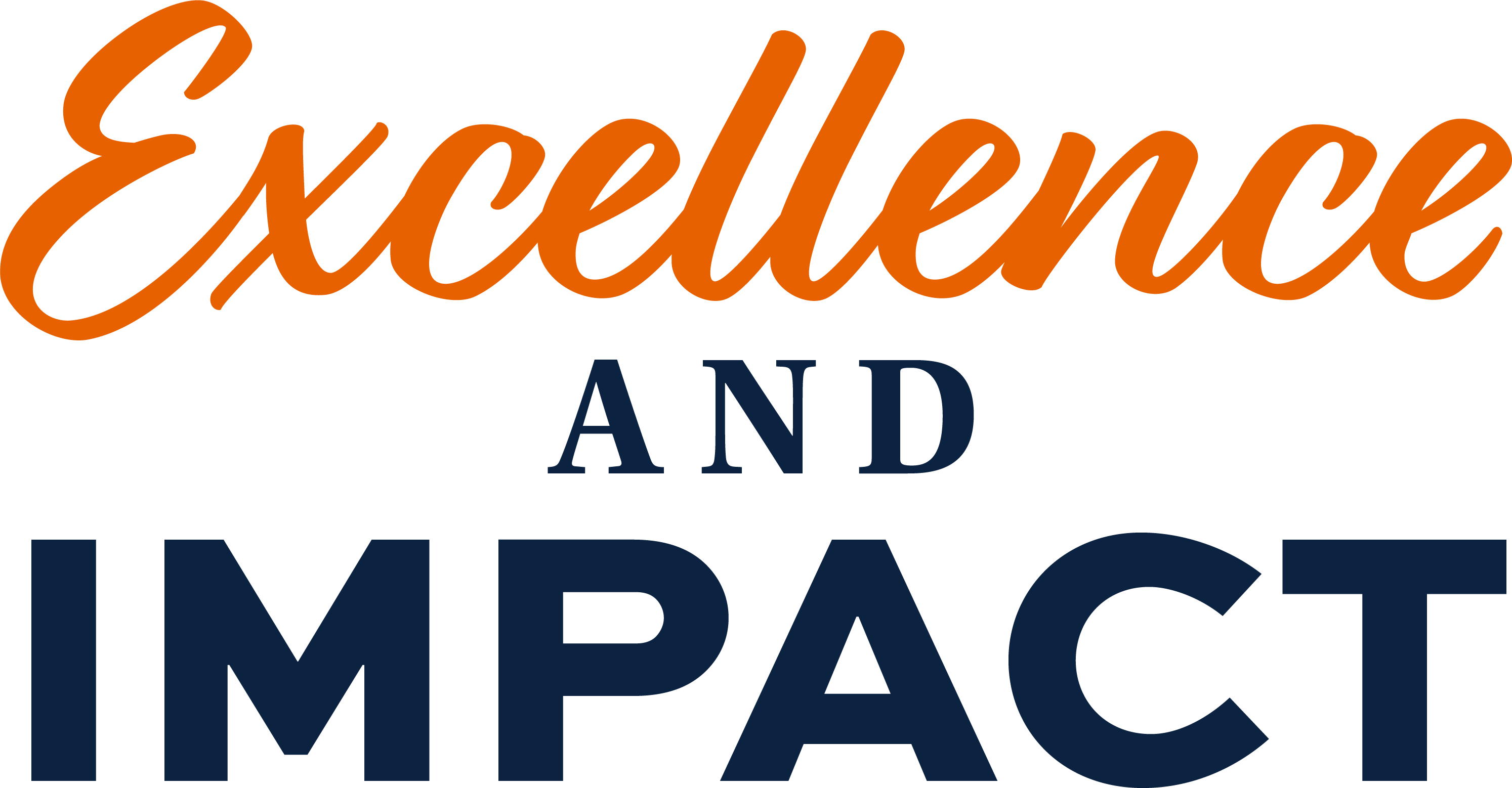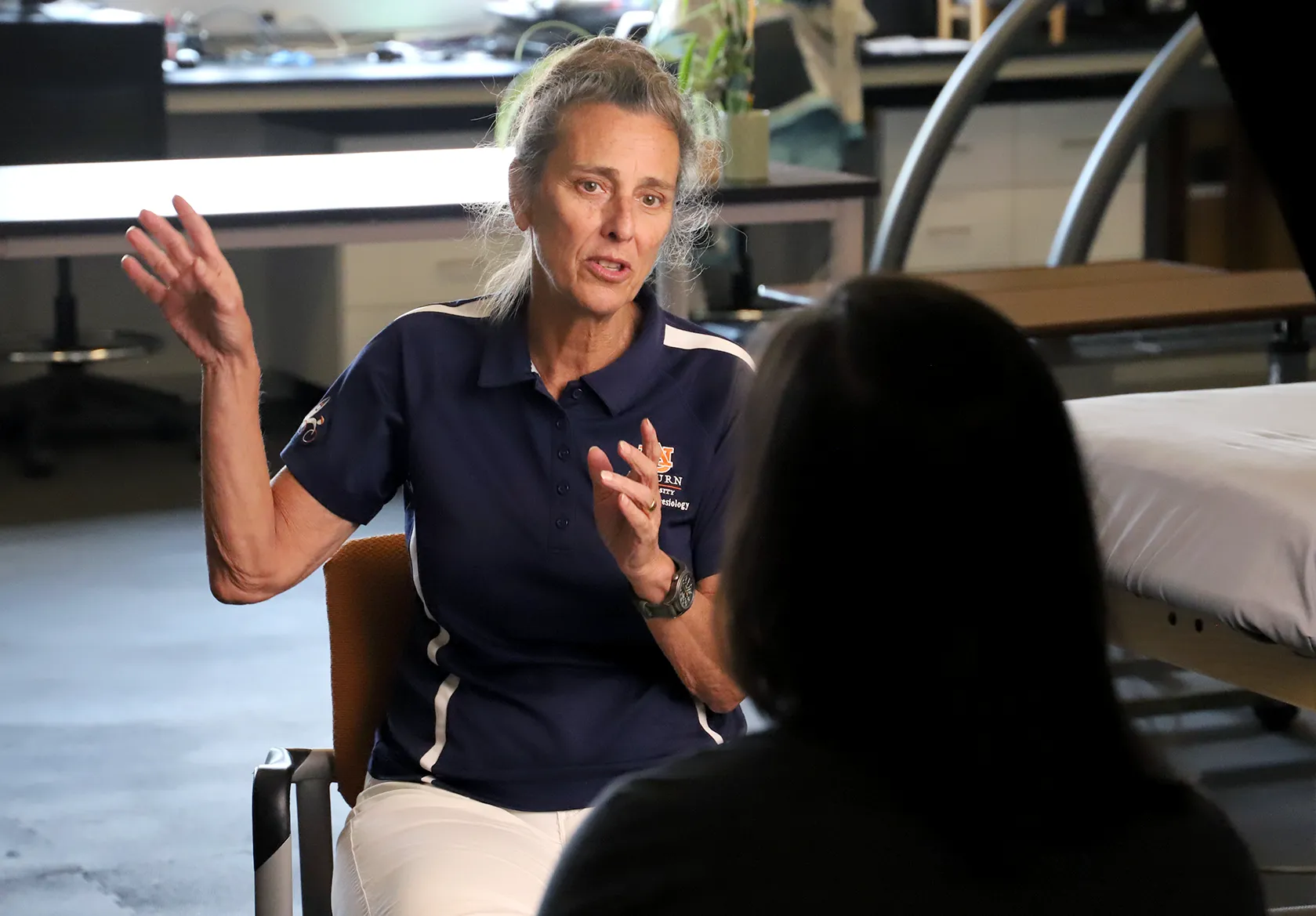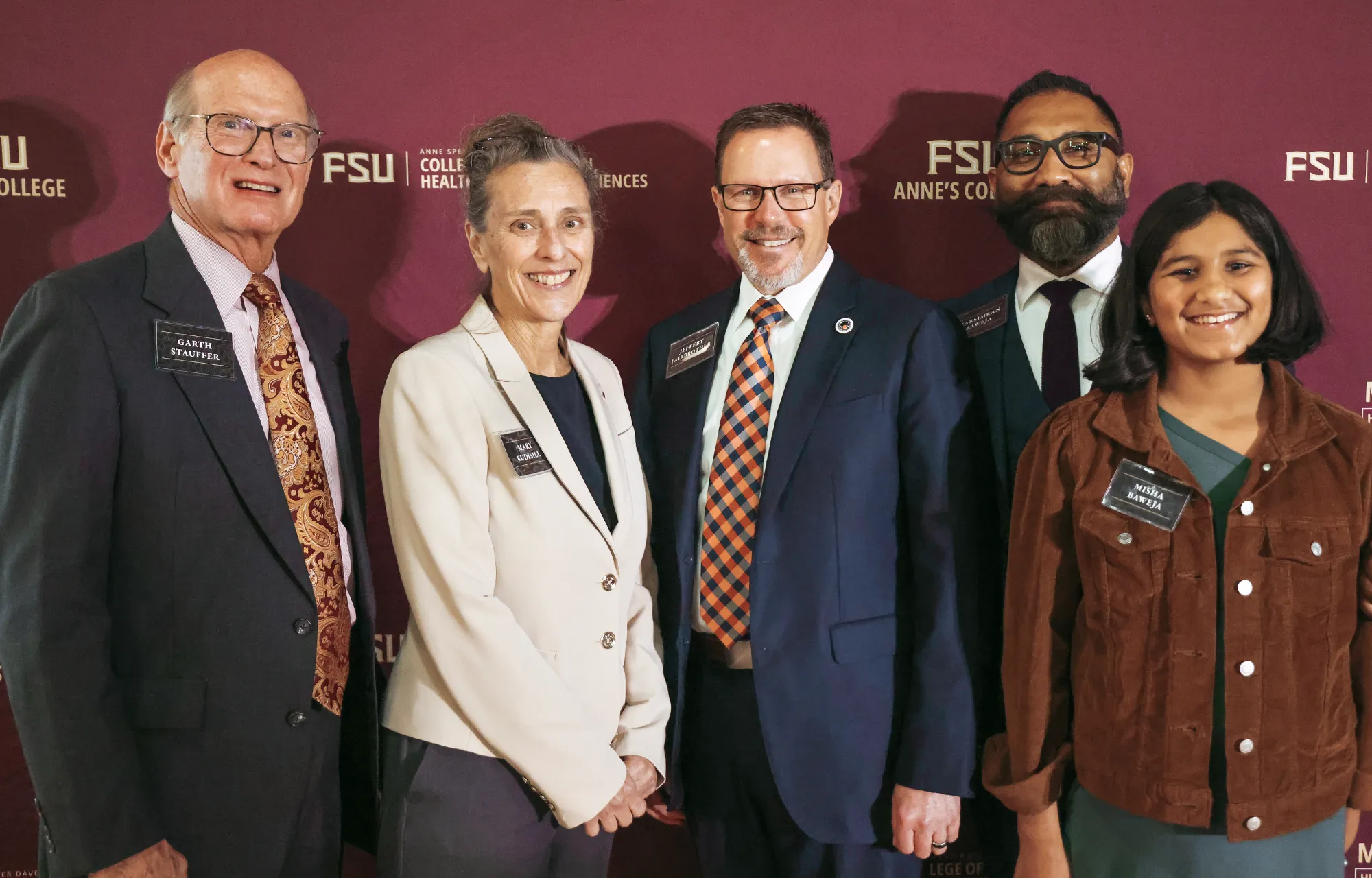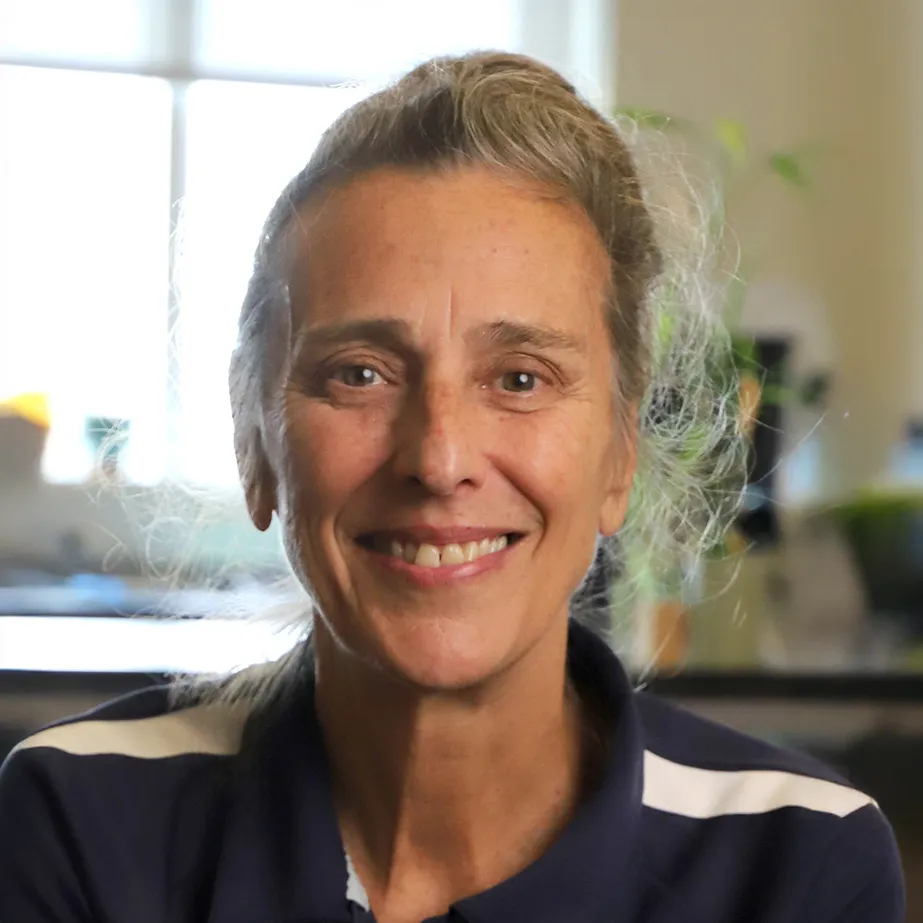Excellence and Impact

Mary Rudisill believes everyone has the right to live a long, healthy life. It’s become her mantra when talking to people about the work being done in the School of Kinesiology – the research, teaching, and outreach all come back to finding ways to help people improve their health to improve their lives. Rudisill, the director and Wayne T. Smith Distinguished Professor in the School of Kinesiology, says there is nothing more important than a person’s health. Her life’s work shows that it’s not just something she says – she believes it and lives it each day.
“There was never a doubt in anyone’s mind that I would pursue a career that involved sport and physical activity. I was always moving as a child,” Rudisill said. “I enjoyed physical activity, sports, and anything that involved competition. Thanks to my sports-minded parents and my siblings, I was exposed to sport early in life. I started swimming on a swim team when I was 5, and during my junior- and high-school years I played basketball, volleyball, and ran on the track team. In undergraduate school, I was employed by campus recreation and intramurals and spent considerable time engaging in fun sports and physical activity. While working on my doctorate degree, I was employed by FSU to provide adapted sports and recreation for students with disabilities. All these educational and sport-related experiences prepped me for the work I do now.”

“Mary Rudisill has been a champion for the School of Kinesiology as its leader for the past 20 years,” said Jeff Fairbrother, dean of the College of Education. “She has worked tirelessly to grow enrollment; adapt and change programs as needs changed; and increase visibility for the school globally. Under her leadership, the School of Kinesiology has become a model for the successful pursuit of impactful research, high-quality teaching, and meaningful outreach. Her leadership has been instrumental in the success of the college, and the positive impact she has made will be seen for generations to come.”
As a kinesiologist and researcher, Rudisill’s work has focused on how motivational climates promote children’s engagement in physical activity and facilitate motor learning. Her work has led to the creation of physical play curricular materials designed for early childhood settings, promoting lifelong physical engagement and healthy lifestyles.
“It has been a joy to teach and mentor students over the years, and to contribute to research that strives to improve the quality of life for all children through physical activity,” she said. “Through my research, I’ve seen firsthand, how we can empower children to reach their full potential. It is inspiring work.”

“Working in higher education is one of the greatest jobs in the world,” Rudisill said. “A job of responsibility – by improving practice through our research and training our future workforce – in an attempt to make this world a better place to live.”
One of Rudisill’s most prideful achievements is that, in 2024, the School of Kinesiology, under her leadership, was honored with the Inclusive Excellence Award from the American Kinesiology Association (AKA) for its exceptional efforts in fostering an environment that promotes success for all students.
“I am so proud of our success in creating a climate of inclusive excellence to ensure students receive the best possible educational experience for successful employment and future careers,” Rudisill said. “In terms of programs, I am proud of the Doctor of Physical Therapy program and how it will advance our School’s mission. We are going to make a big impact by including PT in our unit. Being recognized with AKA’s Distinguished Leadership Award was quite a prideful moment for me, too.”
The upcoming Doctor of Physical Therapy program is not the only growth the School has seen under Rudisill’s tenure.
“We grew from 286 majors to over 800 over the course of my leadership,” she said. “We have also improved our doctoral program rankings from the National Academy of Kinesiology from 26th in 2005, 22nd in 2010, 14th in 2015 to 12th in 2023.”
In another move needed to accommodate the growing program, the School of Kinesiology moved into a new 23-million-dollar state of the art facility with 26 laboratories dedicated to research in 2013. That facility will now be home to the school’s Doctor of Physical Therapy program and has undergone renovations to build out a clinic space and digital anatomy lab.
“She is also a driving force behind our new Doctor of Physical Therapy program,” Fairbrother said. “Through all her work, Mary is a tireless advocate for others and the betterment of society.”
As Rudisill looks toward retirement, she is reflecting on the legacy she hopes to leave at the School of Kinesiology: A spirit of impact.

When asked about the line of the Auburn Creed that resonates most with her, she had three.
“My papa used to tell me that through education, you can be whatever you want to be. So, I love the line, ‘I believe in education, which gives me the knowledge to work wisely and trains my mind and my hands to work skillfully.’ For the application to the work we do in kinesiology, the line ‘I believe in a sound mind, in a sound body and a spirit that is not afraid, and in clean sports that develop these qualities’ embodies what we do. But, the line that connects the most with me and my beliefs is, “I believe in the human touch, which cultivates sympathy with my fellow men and mutual helpfulness and brings happiness for all.”